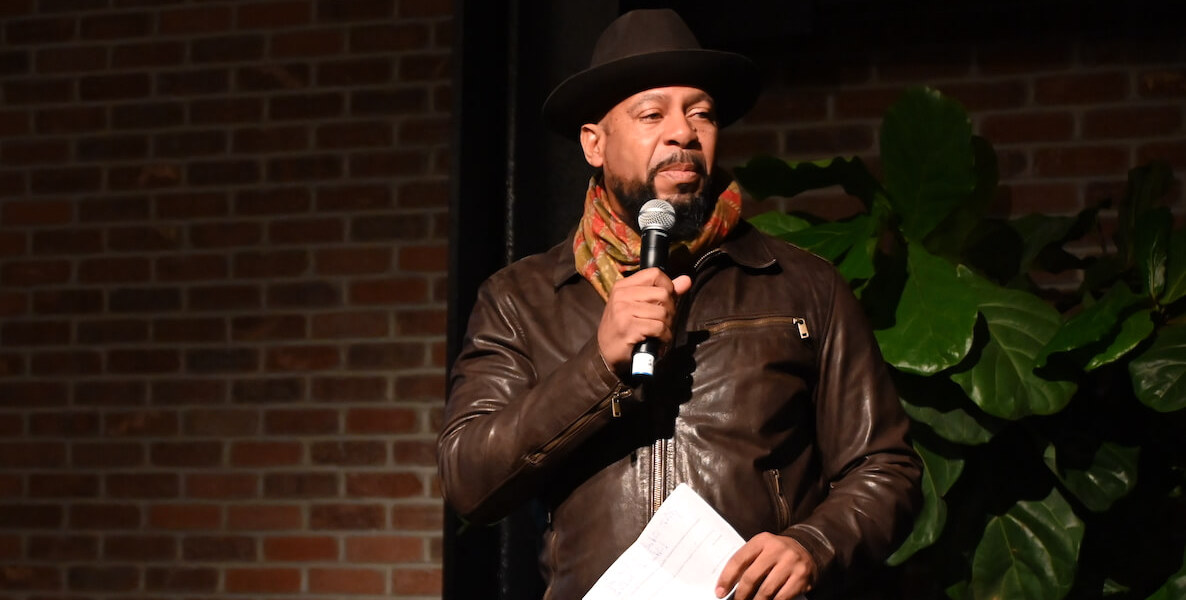How do we redefine public safety in our country? How do we empower residents to take charge of public safety in their neighborhoods?
These were among the profound questions posed by Aqeela Sherrills in his moving talk at our fourth annual Ideas We Should Steal Festival presented by Comcast NBCUniversal.
Sherrills is the director of Newark Community Street Teams (NCST), a spirit-centered organizer and activist who has worked for three decades to promote community ownership of public safety and facilitate healing from violence in marginalized communities. A nationally recognized expert in victim service and community-based public safety, he has created and led multi-million-dollar nonprofit organizations focused on reducing violence and fostering safety in urban communities, and advised hundreds of organizations.
“We’re at an inflection point in history,” he said at the Festival. “The public execution of George Floyd signaled to us that never again should we see law enforcement as a single point of contact for safety in our respective communities.”
“Public safety is not just the absence of violence and crime,” he said. “It’s the presence of wellbeing and the infrastructure to support victims and survivors in their respective healing.”
The way he sees it, public safety must be more holistic in its approach that includes police, but goes well beyond that. “Public safety is not just the absence of violence and crime,” he said. “It’s the presence of wellbeing and the infrastructure to support victims and survivors in their respective healing.”
The NCST model is about building infrastructure, putting systems in place, and then trusting the community to take over. And so, he explained, NCST involves a three-pronged strategy, including high-risk intervention; outreach; and victim advocacy and victim services. It also focuses on hiring residents from within communities—98 percent of its staff are residents of the neighborhood—and establishing a relationship-based intervention model.
“We understand that violence is a public health issue and [the value in] using the public health model, that those who are in closest proximity to the violence should be equipped with the skills, tools, and resources to do the intervention, prevention, and treatment,” Sherrills said.
The impact of NCST and its coordinated strategy has been dramatic. In its first two years, Newark saw a double-digit reduction in homicide; the next year, a 60-year low in violence. The city went from 103 to 51 homicides in 2019, and while violence spiked in 2020 across the country, Newark’s numbers remained flat.
“You can’t have public safety without the public,” he said of the program’s secret sauce. See Sherrills’ full talk below.
The Ideas We Should Steal Festival was made possible by our sponsors. See who they are here.
![]()
RELATED
Reality Check: Could We Cut Philly Shootings by. . .Up to 93 Percent?




